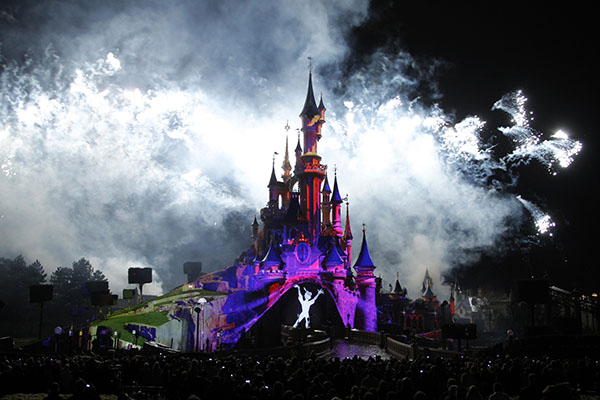 |
|
The Sleeping Beauty Castle is seen during the premiere of the new Disney Dreams show as part of the 20th anniversary celebrations of Disneyland Paris Resort in Marne-la-Vallee, outside Paris, in this March 31, 2012 file photo. [Photo/Agencies] |
PARIS - When Edith Zemirou bought Euro Disney stock two decades ago, she expected a decent return and her own small share in Mickey Mouse magic.
In 1989, the Walt Disney Company announced a public share offering of its young European arm. It was the continent's largest-ever IPO to that point and analysts said Euro Disney stock promised "good long-term returns."
Zemirou bought in, and has regretted it ever since. Her original 1992 investment would have lost 95 percent of its value by now. "It's too bad they didn't give us paper share certificates," said the grandmother and former high school principal, who still has 100 shares worth about 3 euros ($3.4)each. "At least we could have framed them, as souvenirs."
Zemirou says she feels duped. She heads Euro Disney's investor club and is one of 1,000 or so investors who are furious at the way Euro Disney, which is raising fresh capital in the face of insolvency, has been run. The Paris-listed firm has recorded losses in 16 of its 23 years, despite owning Europe's top tourist destination with about 14 million visitors per year.
Euro Disney managers say the firm has struggled because initial projections were too optimistic and the park borrowed too heavily. They also blame a lack of visitors, Europe's weak economy and, in many years, guests who spend too little on food and merchandise.
Shareholders do not dispute there are difficulties, but point to another factor: US-based Walt Disney Company, which owns 40 percent of Euro Disney, extracts tens of millions of euros annually from the European firm by charging it a host of fees and royalties for everything from operating a call centre to the use of intellectual property.
Those charges cost Euro Disney around 10 percent of its annual revenue - too much, shareholders say, for it to become profitable. As evidence, they point out that all the years the European firm did turn a profit for shareholders were between 1995 and 2001, a period when Walt Disney Company had suspended most of its charges.